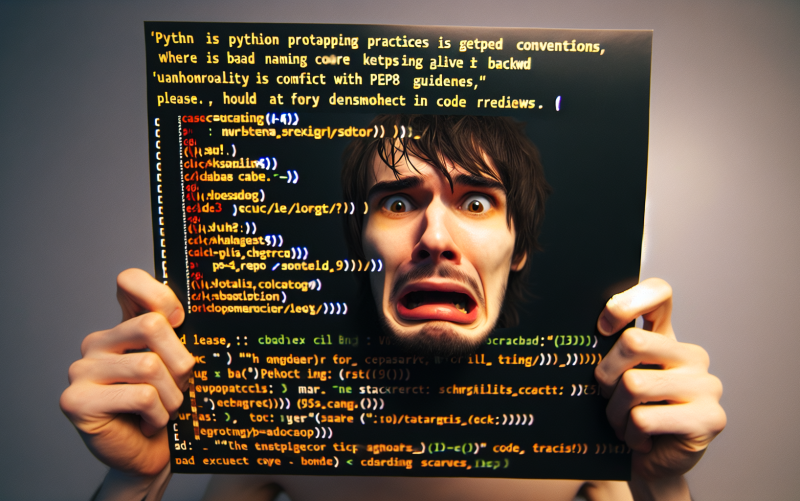What are some common bad practices in Python, and how do you handle backward compatibility while still following PEP8 guidelines?
There are a few common bad practices in Python that many developers fall into, especially early on. Here are some that tend to pop up frequently:
- Ignoring PEP8 (Style Guide): PEP8 helps keep Python code readable and consistent. Skipping it, especially with naming conventions or indentation, can make your code harder to maintain and share.
- Poor naming conventions: Using non-descriptive or inconsistent variable names is a common issue. Names like
x,temp, orfoodon’t tell future developers (or your future self) much about what the variable is supposed to represent. - Overcomplicating code: Python’s strength is in its readability and simplicity. Avoid writing overly complex code when simpler solutions exist, especially when using list comprehensions or lambda functions in ways that make the logic hard to follow.
- Global variables: Over-reliance on global variables can lead to confusing bugs, as their values can be changed in unexpected places. It’s better to use functions or classes with well-scoped variables.
- Not handling exceptions: Skipping proper error handling can cause programs to fail in unpredictable ways. It’s important to use
try-exceptblocks thoughtfully and not just blanket-catch exceptions without addressing the underlying problem. - Neglecting testing: Writing code without proper tests often leads to issues later. Even simple unit tests help catch bugs early and ensure that changes don’t break existing functionality.
- Overuse of
*argsand**kwargs: While these can be powerful, overusing them or using them without good reason can make your code confusing and harder to debug.
As for backward compatibility vs. following PEP8, it’s definitely possible to find a balance. Some people argue that you can gradually refactor the code while maintaining compatibility, using tools like deprecation warnings to signal changes over time. This allows you to clean things up without forcing a massive rewrite.

